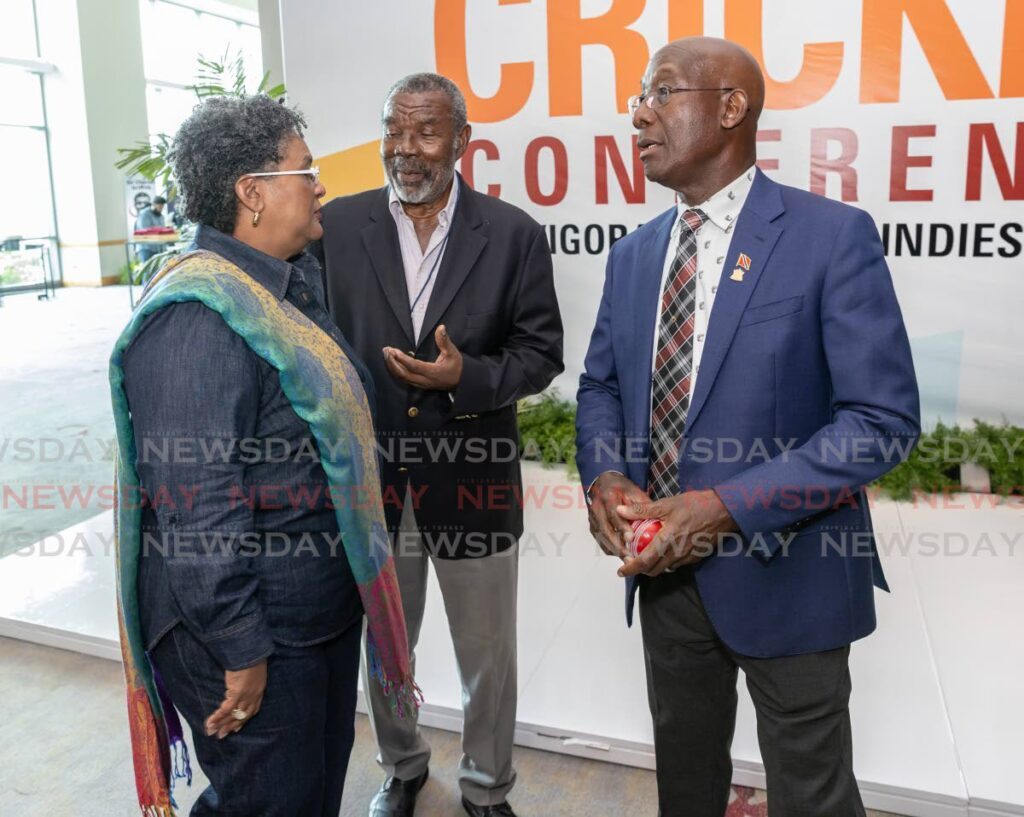Put West Indian cricket history in school syllabus

THE EDITOR: "History provides students with a sense of identity and belonging through learning about the past, students can see how their own culture, society and nation have developed over time. This knowledge can give them a sense of pride in their heritage and a deeper understanding of their place in the world."
George Bennett
UK history teacher
I attended last week's two-day Caricom Regional Cricket Conference at the Hyatt Regency (Trinidad).
Hosted by the Prime Minister of Trinidad and Tobago and chair of the Caricom Prime Ministerial Sub-Committee on Cricket, Dr Keith Rowley, the symposium brought together under one roof, heads of government, ministers, regional cricket administrators and officials, legends of West Indies cricket and former players, CPL CEO Pete Russell and regional journalists.
As an indicator, after 20 consecutive years of Test cricket dominance (1975-1995), save and except four series defeats, the conference sought to find out what went wrong and offer solutions.
The demise of West Indies cricket in the last two decades has been painful.
The success of West Indian (Test) cricket is one of the strongest forces of Caribbean unity here and abroad.
On the first day, I made my own pitch to the wide audience as a former Caribbean Studies teacher and a student of West Indian cricket history.
Stressing first that the rich history and cultural legacy of West Indian cricket should be inserted into the primary schools, I proposed that the Caribbean Studies syllabus (mandatory subject at the sixth-form level), should include more literature and research findings on the success and legacy of West Indian cricket.
This template of success and performance over the 20-year period that the legends of cricket crafted can be used as a motivational force for our students. It can shape and mould their character.
The success was built on nationalism, patriotism, passion, professionalism, team spirit, mental fortitude, proper diet and nutrition that forged a supreme level of fitness.
I further added that the Caribbean syllabus content is enormous and should be expanded to a two-year study instead of one year.
At the moment, there is very sparse mention of anything relating to the success or legacy of West Indies cricket in the Caribbean Studies syllabus.
Communication Studies is the other mandatory one-year sixth-form programme (language and communication topics) and I proposed that key elements of this subject can be inserted into the Caribbean Studies syllabus.
The Prime Minister of Barbados, Mia Mottley, referred to my contribution on two occasions – on the podium and personally.
As a further thought, courses in West Indian cricket history should be included in the BSc degrees of sports management at UWI and UTT.
On June 29, 1950 at Lords, the West Indies won their first ever Test match on English soil. It was those "two pals of mine," spinners Sonny Ramadhin and Alf Valentine that wrecked England and propelled West Indies to victory by 326 runs.
West Indians celebrated at Lords and throughout the diaspora. There were song and dance on the field led by calypsonian Lord Kitchener (Aldwyn Roberts).
The "colonialists" were finally conquered on their own soil, Caribbean flags were draped in front of the players' hotel, Barbados and Jamaica declared public holidays.
Let us find spaces in the school and university bags of the Caribbean to truly honour the on and off field exploits of the likes of Headley, Stollmeyer, Rae, Sobers, Kanhai, Hall, Gibbs, Worrell, Weekes, Walcott, Ramadhin, Valentine, Lloyd, Richards, Greenidge, Murray, Roberts, Holding, Lara and Chanderpaul.
They deserve it.
REZA ABASALI
El Socorro


Comments
"Put West Indian cricket history in school syllabus"